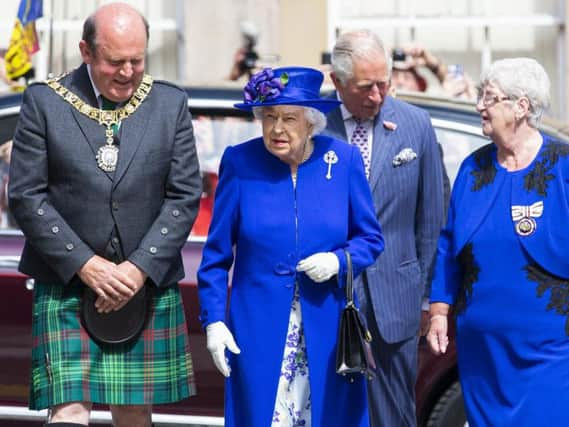Comment: Looking back 20 years, has Holyrood ‘worked’?


The fact that history was being made at Holyrood was lost on him. Even the gift of a yellow sticker (quickly shredded) from a kindly Lib Dem polling agent wasn’t enough to quieten him. But thus poor Duncan became a metaphor for a new institution that this week turned 20. Rather like the 150 or so children born on that day in July 1999, Holyrood still has the odd teenage moments, but the rules have changed as they got older.
At the time, and even now, people are quick to compare Westminster with Holyrood. A thousand years of history, not all of which went to plan, versus 20. But here we are, 20 years since those immortal words “there shall be a Scottish Parliament” became a reality. I’ve worked in public affairs since the late ‘90s, when Westminster MPs were rare animals we seldom saw. Devolution promised much and some would argue has yet to deliver it all. It is certainly a more open and accessible organisation for those seeking to do business with it.
Advertisement
Hide AdAdvertisement
Hide AdPeople are often still quick to criticise Holyrood, but is has achieved much in 20 years. We have genuine economic growth and the highest level of employment in the UK – facts even the Tories grudgingly acknowledge. Free personal care for our elderly and zero tuition fees are looked upon enviously by English MPs.
We’ve had six First Ministers – including Jim Wallace, who covered twice for Donald Dewar whilst he was incapacitated. Some 330 people have sat as MSPs, and 16 or 17 have been there since the very start (Tavish Scott is the youngest veteran, although he is soon to leave for pastures new). And some lasted barely a few weeks; Labour’s Lesley Brennan was a North-east list MSP for just ten weeks in early 2016.
Ian Welsh (Labour) and Stefan Tymkewycz (SNP) both resigned within months of being elected as they just didn’t like the job. And a surprising number have served only one term, a consequence of the list system whose structure is unique to Holyrood and the Welsh Assembly.
Much has happened in those 20 years and gradually more and more powers have been devolved northwards from an increasingly discredited Westminster, suspended in its own inertia over Brexit. We already had transport, planning, health, education and rural affairs. Soon additional powers over farming and fishing concessions come to Holyrood rather than Westminster if the Scottish Government get their way. Many forget that more than 85 per cent of policy is already devolved and, for that reason alone, Holyrood matters.
It hasn’t all been plain sailing, of course. Very few Members’ Bills have actually made it through to law and the committee system – intended to be a sort of “second chamber” – quickly became and has remained much more politicised than ever intended with the government of the day’s view generally prevailing. Holyrood is, however, still a very young institution – 20 years is a blink in time and the opportunities to engage are significant. Few MSPs will decline a meeting with a local business or organisation linked to their constituency, committee or spokesperson duties. The opportunity to reach ministers who make real decisions is dramatically better than those of us who remember “lobbying” in the pre-Holyrood days.
So perhaps the last words should go to Her Majesty who opened Holyrood this equivalent week in 1999 and returned last weekend to celebrate the first 20 years, concluding that for most of this period this striking chamber has provided a place to talk. But of course it must also be a place to listen – a place to hear views that inevitably may differ quite considerably, one from another – and a place to honour those views. Roll on July 2039!
Devin Scobie is public affairs director with Perceptive Communicators.